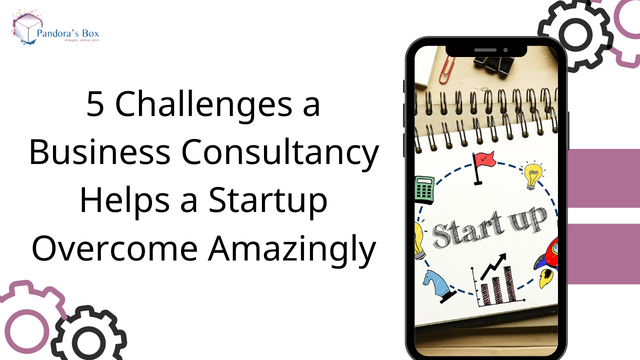Lately, I have heard a lot of noise about the ‘startup bubble’, as the non-startup enthusiasts would like to call it. That it will soon burst, and all investments, ecosystem players, and entities affiliated with the startup ecosystem will lose their money, resources, activities, etc.
My fundamental question/argument to those thoughts leaders, trendsetters, and influencers is this: “you can’t clap with one hand; it is a 2-way street”. Unless proven otherwise, startups are not mere numbers to play with any longer, they are a force to reckon with. India alone has given (I am not using the word ‘produced’ over here as I don’t believe that we are a production house) over 72,993 startups and a shining 105 Unicorns to take a bow.
The total number of recognized startups in India rose from 471 in 2016 to 72,993 as of 30th June 2022.
We will only see a rise in this number as more and more people are making a dedicated and calculated effort to address unresolved pain points of their potential consumers through their products and solutions.
Yes, I agree that not all startups have succeeded, and we won’t be able to achieve a 100% success rate. However, from the rising number of unicorns born in India YoY, we can see that we are steadily improving. In the coming years, we will only see an upward trajectory to this trend. The year 2019, 2020, and 2021 saw the birth of the maximum number of Indian unicorns with 7, 11, and 44 unicorns coming each year, respectively.
Why is that so?
The Indian startup ecosystem is developing an understanding of the fundamental principle a startup needs to succeed; ‘Nurturing’.
Over a period of time, the ecosystem has surely shifted its focus to nurturing startups through its various initiatives. The ecosystem is trying to help startups resolve innovation, go-to-market strategies, and leadership problems. It is relentlessly empowering start-ups, firms, and ventures to solve for weak business models, poor planning, incompatible teams, and a lack of original ideas and tech capabilities, to name a few.
The government initiatives like #startupindia, accelerator programs, angel networks, and programs conducted by foreign firms have put their time, resources, and experience into contributing to the growth of emerging startups in India. They lend a hand in idea validation, business planning, team building, networking, and partnerships, apart from funding the startups. They understand there’s more to venture than capital, and there’s much more to Indian Startups than numbers.
The startups in India are the ‘Dark Horses’ waiting to be put on the race course to gallop and win the race!
Let me share some facts about our country, India that has been synonym with intelligent problem-solvers, calculated risk-takers, and go-getters. It is these inherent qualities and traits of being the ‘doers’ that India has always been at the forefront of bestowing entrepreneurs left-right and center. Indians have mastered the art and science of all aspects of business, before the words ‘startup’, ‘entrepreneurs’, and ‘unicorns’ were even coined.
There’s hardly anyone who doesn’t know these names – Narayan Murthy, Ronnie Screwvala, and Sunil Mittal. They built successful companies – Infosys, UTV, and Bharti Group by embarking on a “learning and doing” journey. They are the first-generation entrepreneurs who had no legacy of business passed down to them from their predecessors, but they had the vision and wisdom to build something valuable.
For example, Ronnie Screwvala founded UTV when there was only a single terrestrial channel in India (Doordarshan). In one of his interviews with Harvard Business Review, he said, “First-generation entrepreneurship was very different at that time. There weren’t alphabets like ‘VC’ or ‘PE’ or even longer words like ‘angel’. There wasn’t a word like debt because no bank funded a first-generation entrepreneur with zero collateral. Especially in non-manufacturing businesses.”
Mr Narayana Murthy started Infosys with only $250, which he borrowed from his wife, Sudha Murthy. He’s known as the ‘Father of the Indian IT sector’ for his contribution to outsourcing in India.
Sunil Mittal, at the age of 18 years, started his business with a capital investment of $250 borrowed from his father. His first business was to make crankshafts for local bike manufacturers, and today, he’s a billionaire entrepreneur owning the Bharti Group.
These first-generation entrepreneurs started with an idea and then moved on to find whether the idea solved a customer pain point. They built solutions that understood the need and innovatively catered to it. They built companies because they understood that an idea alone wasn’t sufficient to establish a business.
They had this level of clarity even before entrepreneurship was a mainstream term. Even before, enough resources were available to learn from, and enough people were present to help with their venture problems. They understood how businesses functioned and what cogs needed to be addressed and managed for success.
Indian founders and leaders of firms have always been quick on the uptake to learn and incorporate changes that will help them achieve the business benchmarks. They have used the advancements to their advantage to transform their business from a commodity to a solution that addresses the customers’ pain points they are capable of solving. They keep looking for trends and movements that will smoothen their path of turning their business into an experience – something that today’s consumers demand.
Conclusion – Indians aren’t new to the landscape of entrepreneurship. While the terrain has undergone many changes on the surface, the core remains the same. The entrepreneurs and founders are curious and prepared to embrace change. What they need is nurturing to understand how incorporating surface-level changes will help them strengthen their core to scale and grow.
Ronnie Screwvala – Creating Emerging Markets – Harvard Business School (hbs.edu)








![4 Key steps to Effective Strategic Planning [Learn from Top Consulting Firm] 5 4 Key Steps to Effective Strategic Planning [Learn from Top Consulting Firm]](https://pandoras-box.in/wp-content/uploads/2023/08/4-Key-Steps-to-Effective-Strategic-Planning-Learn-from-Top-Consulting-Firm.jpeg)













